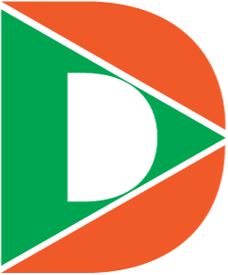Understanding the Foundation of Hybrid and Native App Development
Developers face a critical decision when it comes to choosing the right approach for building their apps: hybrid or native. Both methods of app development have their strengths and weaknesses. In this world of mobile applications, making the right choice is essential to crafting applications that function seamlessly.
Understanding the difference between them is important for decision-making. This blog will provide you with insights into the complexities of hybrid app development. We aim to provide a clear understanding of these approaches, which enable you to make decisions aligned with projects and expectations.
The Basics of Hybrid and Native App Development
Before we understand the difference between hybrid and native apps, let’s establish a fundamental understanding of these terms.
Native Apps
Native apps are designed and developed for a specific operating system, such as iOS or Android, using platform-specific programming languages like Swift for iOS or Kotlin or Java for Android. These apps are optimized for the particular hardware and software of the target device. This results in superior performance and seamless integration with the device’s functionalities.
Hybrid Apps
Hybrid apps are a blend of web technologies (HTML, CSS, and JavaScript) and native code. These apps are essentially web applications wrapped in a native container. These apps allow them to be deployed on multiple platforms with a single codebase. Hybrid apps can access certain native device features through plugins, providing a compromise between cross-platform compatibility and native performance.
Now, let’s understand the differences between these two approaches:
Performance
One of the primary distinctions lies in performance. Native apps are renowned for their superior performance as they are specifically tailored for the targeted platform. They can leverage the full potential of the device’s hardware and take advantage of platform-specific features, resulting in smoother animations, faster load times, and overall responsiveness.
Hybrid apps, while offering cross-platform compatibility, may experience performance trade-offs. Since they rely on web technologies, they might not achieve the same level of optimization as native apps. However, advancements in hybrid frameworks and improved hardware acceleration have narrowed this performance gap over the years.
Development Time and Cost
Hybrid app development has a clear advantage when it comes to development time and cost. With a single codebase for multiple platforms, developers can save time and resources compared to building separate native apps for each platform. This cross-platform development approach is especially beneficial for startups and small businesses with limited budgets and tight schedules.
On the other hand, native app development requires separate coding for each platform, leading to increased development time and costs. However, the investment often pays off in terms of the app’s performance and user experience on the specific platform.
User Experience
It is a critical factor that influences the success of any app. Native apps, tailored for a specific platform, can deliver a seamless and immersive user experience. They have access to platform-specific design guidelines, which allow developers to create interfaces that feel native to the users.
Hybrid apps face challenges in replicating the exact native feel across different platforms. While advancements in hybrid frameworks and design libraries aim to bridge this gap, achieving a truly native-like user experience can be challenging.
Access to Device Features
Native apps have unparalleled access to device features and APIs. Developers can harness the full potential of hardware functionalities such as cameras, GPS, and sensors, ensuring a rich and integrated user experience. This deep integration enables the creation of feature-rich applications with optimal performance.
Hybrid apps, though they can access device features through plugins, may face limitations in utilizing the full spectrum of native capabilities. While many common features are accessible, some advanced functionalities may require custom native app development.
Maintenance and Updates
Maintaining and updating apps is an ongoing process in the ever-evolving tech landscape. Hybrid apps benefit from a simplified maintenance process, as changes made to the codebase reflect across all platforms simultaneously. This is particularly advantageous for quick bug fixes and updates, streamlining the development life cycle.
Native apps, due to their platform-specific nature, require separate updates for each platform. While this might seem difficult, it allows developers to fine-tune the app for each platform. Thus ensuring optimal performance and compliance with the latest OS versions.
Conclusion
In the debate between hybrid and cross platform app development services, there is no one-size-fits-all solution. The choice depends on various factors, including project requirements, budget constraints, and performance expectations.
Hybrid app development is a cost-effective and time-efficient solution for projects with limited resources and a need for cross-platform compatibility. They are well-suited for simpler applications and prototypes where performance is not a critical factor.
On the other hand, native apps shine when optimal performance, platform-specific design, and deep integration with device features are paramount. They are the preferred choice for high-performance gaming apps, complex applications, and projects where user experience is a top priority.
In this rapidly changing world of app development, hybrid and native approaches continue to coexist, each finding their niche in different scenarios. As technology advances, hybrid frameworks improve, and development tools evolve, the gap between hybrid and native app experiences may continue to narrow, offering developers more flexibility and users richer experiences. Ultimately, the key lies in striking the right balance between development efficiency, performance, and user experience to meet the unique requirements of each project.

As a DIGITALTECHSIDE author, the majority of our articles have been focused on technology, blogging, business, lifestyle, social media, web design and development, e-commerce, money, health, education, entertainment, SEO, travel, and sports.
Contact us at digitaltechside@gmail.com if you have questions of anything.



